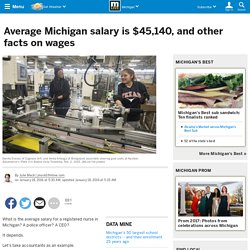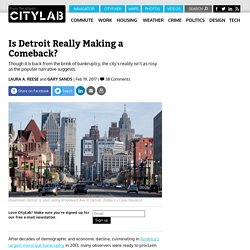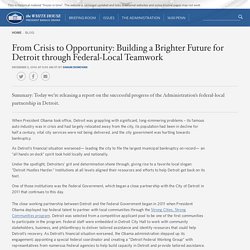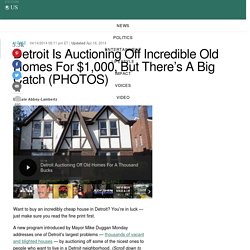

Average Michigan salary is $45,140, and other facts on wages. What is the average salary for a registered nurse in Michigan?

A police officer? A CEO? It depends. Let's take accountants as an example. Planned Shinola Hotel in Detroit is first for luxury goods maker. Autoplay Show Thumbnails Show Captions Dan Gilbert’s Bedrock development company and Detroit luxury goods maker Shinola officially broke ground on a planned 130-room Shinola Hotel downtown Tuesday that will see the overhaul of two Woodward Avenue buildings, the demolition and construction of another, and the construction of a second new building that will link to a retail-filled alley.

The Shinola Hotel will be anchored at the northwest corner of Woodward and Grand River, across the street from what is now the empty Hudson’s block site. Project plans call for buildings at 1400 and 1416 Woodward to be remodeled. “It’s about commitment to craftsmanship and about making things that last,” Tom Lewand, CEO of Shinola, said at the Tuesday groundbreaking. Shinola doesn’t intend to open a store at the site but will use the location to show off Shinola design, Lewand said. A New York-based restaurant firm called NoHo Hospitality Group is also involved. Growing Small Businesses in Detroit and Beyond. Growing Small Businesses in Detroit and Beyond Every time I speak with a small business owner, I am struck by how hard they work, the satisfaction they derive from building something of their own, and the transformation of their aspirations into something tangible.

Whether it is April Anderson of Good Cakes and Bakes (profiled in the video below), who is part of our Small Business Forward program in Detroit, or the recipients of our Mission Main Street Grants® there -- they all share a common goal of creating their own success, while making their communities better places to live and work. Last year, JPMorgan Chase made a $100 million commitment to support Detroit’s economic recovery that included several efforts aimed squarely at boosting small business.
Detroit's lesson — 2016 candidates can't ignore $60 trillion debt: Column. Tough, Cheap, and Real, Detroit Is Cool Again. With the nation’s biggest urban bankruptcy in the rearview mirror, the Motor City is attracting investors, innovators, and young adventurers.

Story by Susan AgerPhotographs by Wayne Lawrence In the heart of Detroit, America’s poorest big city, Anthony Hatinger is planting seeds in a reclaimed liquor store, a squat building repainted in Disney colors: supersize white fish swimming through happy green reeds in deep blue water. Wearing a tie-dyed T-shirt and a gray knit cap, bathed in the glow of greenhouse lights, he holds a pen cap, maneuvering its pointy end to scoop three tiny basil seeds from his palm. He drops them onto moist, cakey plugs of soil—“brownie bites,” he calls them—as he works to give them the potential to sprout. The sweet Italian basil will grow alongside a variety of lettuces.
Is Detroit Really Experiencing a Full Recovery? - CityLab. Though it is back from the brink of bankruptcy, the city’s reality isn’t as rosy as the popular narrative suggests.

After decades of demographic and economic decline, culminating in America’s largest municipal bankruptcy in 2013, many observers were ready to proclaim that the city of Detroit was dead. But over the past several years, following successful resolution of the bankruptcy and the emergence of new municipal leadership, views have changed. Now academics and the popular press are documenting Detroit’s recovery and resilience. Detroit's all-American small-business comeback. The city is seeing younger people moving in, and start-up overhead costs are low, helping to facilitate a downtown revitalization, the Detroit Regional Chamber's Baruah said.

Two recent big projects include Amazon's announcement last fall to unveil a new corporate office and technology hub in the city in 2016, and Nike's plan to open up a retail location. What's more, since 2009 nearly 227,000 private-sector jobs have been added through the end of 2015, according to the Chamber, citing data from the Bureau of Labor Statistics. A Millennial Paradise: How Once-Bankrupt Detroit Is Making A Comeback. What is the first word that pops into your mind when you think of Detroit?

My guess? It’s most likely “bankruptcy.” The next things you think of are probably violence, segregation, economic implosion, political scandal or the decrepit and abundant abandoned buildings that line the outskirts and cluster the heart of the city. In 2008, Detroit had the highest murder rate in the nation. The city had been burdened with 40.7 homicides per 100,000 residents. Got $100? Welcome to your new Detroit home. Fixing Detroit’s Abandoned Housing Problem. It isn’t news to any metro Detroiter that the rundown, abandoned structures in Detroit is a significant problem.

If you were to drive down most neighborhood streets in the city, it’s likely you’ll see gutted homes with trash dumped along the yard sitting alone in a field of two-foot-high grass. The reasons for the abandonment of Detroit has a complex history that goes back to when its population increased more rapidly than any other city in American history. When the auto industry expanded production, and Henry Ford’s famous $5 a day announcement in 1914 brought thousands to Detroit, the demand for housing was high. This explains one of the main reasons that there are so many abandoned homes in Detroit. As more and more families could afford them, Detroit became increasingly populated by single family houses. To try to address the vacant and abandoned housing problem, the Detroit Land Bank Authority was established.
Racial and Spatial Relations as Fundamental Determinants of Health in Detroit. The Financial Health of Detroit Residents. DETROIT'S CATALYTIC CONVERTER: Dan Gilbert’s Bedrock Real Estate Services is helping the Motor City get its mojo back. From Crisis to Opportunity: Building a Brighter Future for Detroit through Federal-Local Teamwork. When President Obama took office, Detroit was grappling with significant, long-simmering problems – its famous auto industry was in crisis and had largely relocated away from the city, its population had been in decline for half a century, vital city services were not being delivered, and the city government was hurtling towards bankruptcy.

As Detroit’s financial situation worsened— leading the city to file the largest municipal bankruptcy on record— an “all hands on deck” spirit took hold locally and nationally. Under the spotlight, Detroiters’ grit and determination shone through, giving rise to a favorite local slogan: “Detroit Hustles Harder.” Institutions at all levels aligned their resources and efforts to help Detroit get back on its feet. One of those institutions was the Federal Government, which began a close partnership with the City of Detroit in 2011 that continues to this day. At its core, this approach to federal-local teamwork relies on a few basic ideas: 2015 home buyer and seller generational trends 2015 03 11. Why I Bought A House In Detroit For $500. Detroit Is Auctioning Off Incredible Old Homes For $1,000, But There's A Big Catch (PHOTOS)
Want to buy an incredibly cheap house in Detroit?

You’re in luck — just make sure you read the fine print first. Volume of abandoned homes 'absolutely terrifying' Detroit — Detroit has had more homes foreclosed in the past 10 years than the total number of houses in several suburbs — or all of Buffalo, New York. Since 2005, more than 1-in-3 Detroit properties — 139,699 of 384,672 — have been foreclosed because of mortgage defaults or unpaid taxes, property records show. The vast majority are houses, and the tally is so huge it shocked even those who spent years working on foreclosure in Detroit. "When you see it on a map, it's absolutely terrifying," said Chris Uhl, a vice president of the Skillman Foundation that is working to prevent foreclosures.
Detroit's Housing Disaster Is Its Leaders' Fault. Anatomy of Detroit’s Decline - Interactive Feature. Mayor Coleman A. Young of Detroit at an event in 1980. Richard Sheinwald/Associated Press.